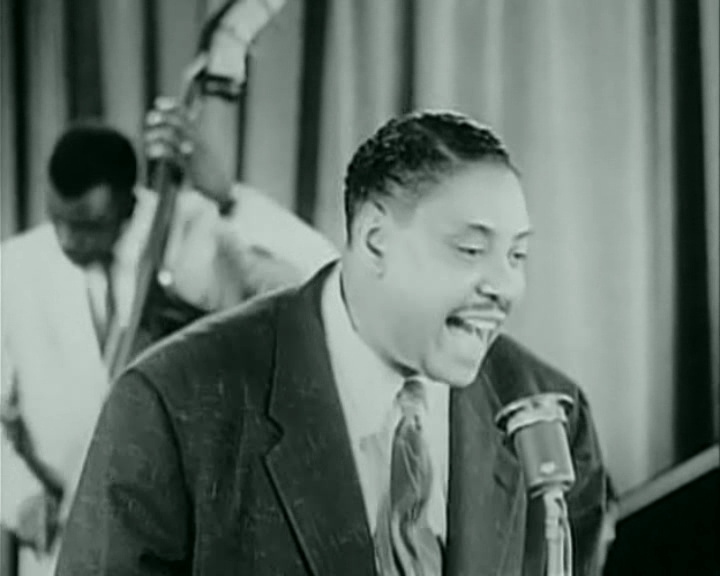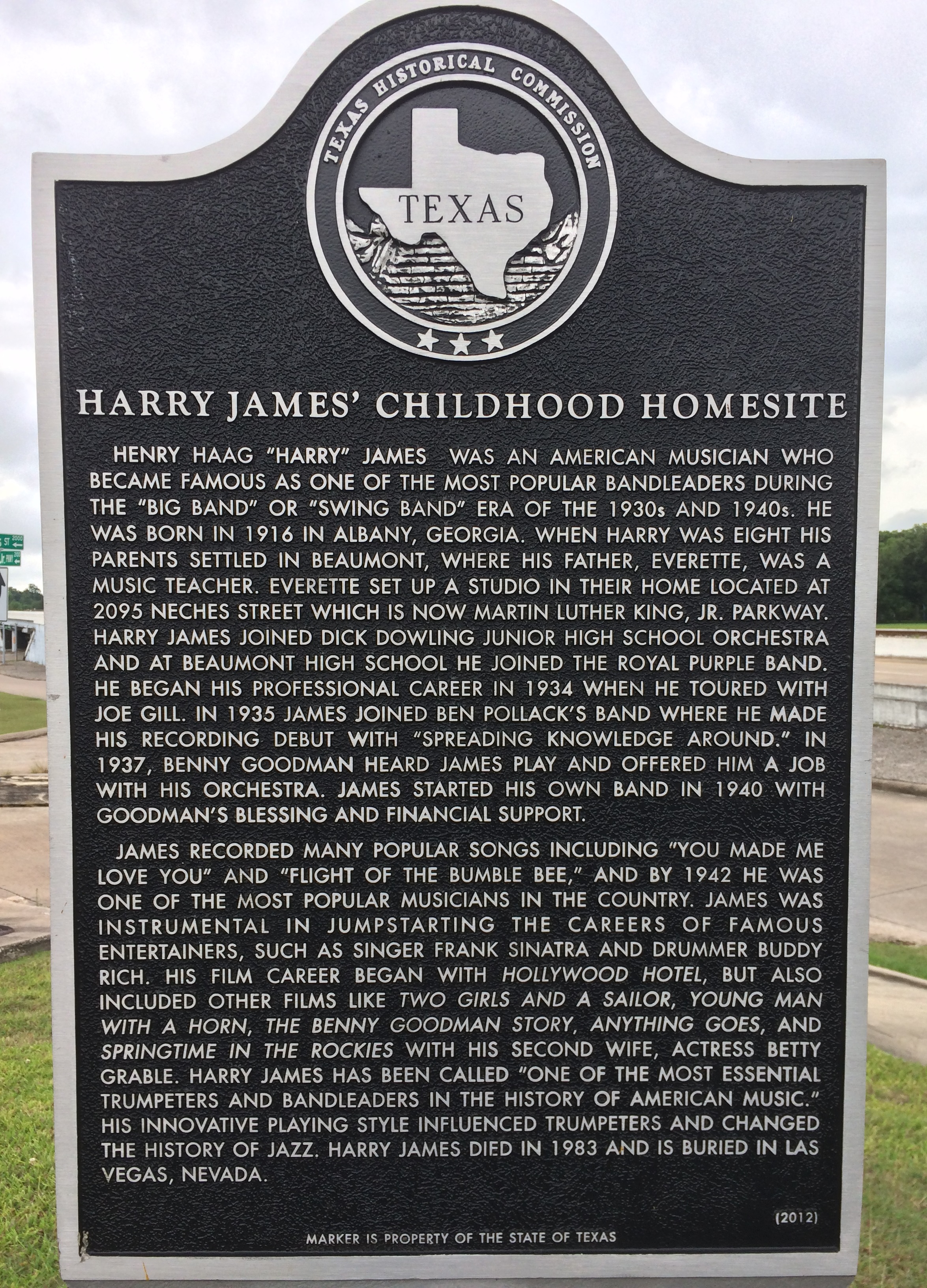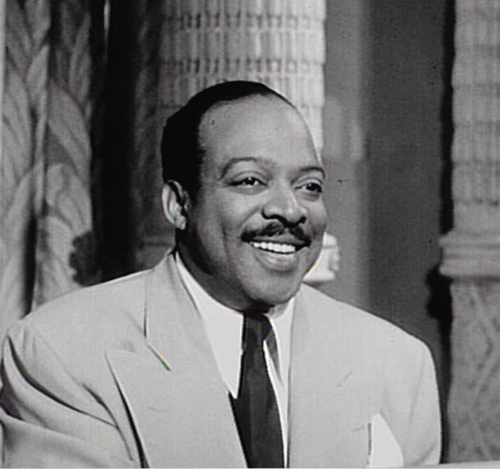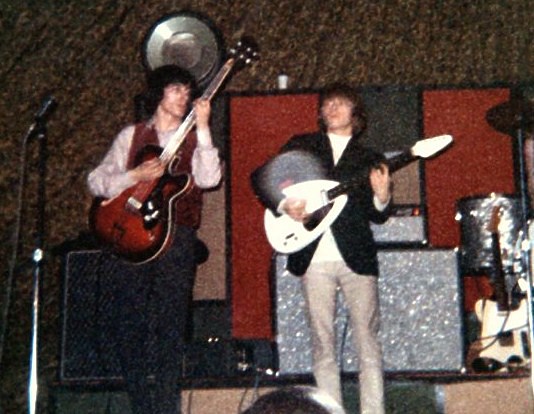|
Roll 'Em Pete
"Roll 'Em Pete" is a blues song, originally recorded in December 1938 by Big Joe Turner and pianist Pete Johnson. The recording is regarded as one of the most important precursors of what later became known as rock and roll. "Roll 'Em Pete" was inducted into the Blues Hall of Fame in 2018, as one of the five new entrants in the "Classic of Blues Recording (Song)" category. Original recording Johnson was a boogie-woogie pianist in Kansas City, who in the early 1930s had developed a partnership with Turner, who was working at the time as a club bartender. Turner would shout blues rhymes to Johnson's music. In 1938, the pair were invited by music promoter and producer John Hammond to the first From Spirituals to Swing concert at Carnegie Hall in New York City. While in New York, Turner and Johnson had a session with the Vocalion record company, recording the 12-bar blues "Roll 'Em Pete" on December 30, 1938. The song was an up-tempo boogie woogie which had become Johnson's si ... [...More Info...] [...Related Items...] OR: [Wikipedia] [Google] [Baidu] |
Big Joe Turner
Joseph Vernon "Big Joe" Turner Jr. (May 18, 1911 – November 24, 1985) was an American singer from Kansas City, Missouri. According to songwriter Doc Pomus, "Rock and roll would have never happened without him." His greatest fame was due to his rock-and-roll recordings in the 1950s, particularly " Shake, Rattle and Roll", but his career as a performer endured from the 1920s into the 1980s. Turner was inducted into the Rock and Roll Hall of Fame in 1987, with the Hall lauding him as "the brawny voiced 'Boss of the Blues. Career Early days Turner was born May 18, 1911, in Kansas City, Missouri, United States. His father was killed in a train accident when Turner was four years old. He sang in his church, and on street corners for money. He left school at age fourteen to work in Kansas City's nightclubs, first as a cook and later as a singing bartender. He became known as "The Singing Barman", and worked in such venues as the Kingfish Club and the Sunset, where he and his part ... [...More Info...] [...Related Items...] OR: [Wikipedia] [Google] [Baidu] |
Paul Oliver
Paul Hereford Oliver MBE (25 May 1927 – 15 August 2017) was an English architectural historian and writer on the blues and other forms of African-American music. He was equally distinguished in both fields, although it is likely that aficionados of one of his specialties were not aware of his expertise in the other. He wrote some of the first scholarly studies of blues music, and his commentary and research have been influential. Early life and career Oliver was born in Nottingham, the son of architect W. Norman Oliver. In the late 1930s, his family lived in Pinner, in North London where he attended Longfield Primary School in Rayners Lane and then went to Harrow County School for Boys between 1938 and 1942. He attended Harrow Art School, where he met his wife Valerie. He initially trained as a painter and sculptor, but because of allergies to some art materials concentrated on graphic design. After a period in the War Office, Oliver gained his Art Teacher's Diploma at Gold ... [...More Info...] [...Related Items...] OR: [Wikipedia] [Google] [Baidu] |
Lionel Hampton
Lionel Leo Hampton (April 20, 1908 – August 31, 2002) was an American jazz vibraphonist, pianist, percussionist, and bandleader. Hampton worked with jazz musicians from Teddy Wilson, Benny Goodman, and Buddy Rich, to Charlie Parker, Charles Mingus, and Quincy Jones. In 1992, he was inducted into the Alabama Jazz Hall of Fame, and he was awarded the National Medal of Arts in 1996. Biography Early life Lionel Hampton was born in 1908 in Louisville, Kentucky, and was raised by his mother. Shortly after he was born, he and his mother moved to her hometown of Birmingham, Alabama. He spent his early childhood in Kenosha, Wisconsin, before he and his family moved to Chicago, Illinois, in 1916. As a youth, Hampton was a member of the Bud Billiken Club, an alternative to the Boy Scouts of America, which was off-limits because of racial segregation. During the 1920s, while still a teenager, Hampton took xylophone lessons from Jimmy Bertrand and began to play drums. Hampton was ... [...More Info...] [...Related Items...] OR: [Wikipedia] [Google] [Baidu] |
Jimmy Witherspoon
James Witherspoon (August 8, 1920 – September 18, 1997) was an American jump blues singer. Early life, family and education Witherspoon was born in Gurdon, Arkansas. His father was a railroad worker who sang in local choirs, and his mother was an avid piano player. Witherspoon's grandson Ahkello Witherspoon is the starting cornerback for the Pittsburgh Steelers. Witherspoon eventually joined the Merchant Marines. Career Witherspoon first attracted attention singing in Calcutta, India, with Teddy Weatherford's band, which made regular radio broadcasts over the US Armed Forces Radio Service during World War II. Witherspoon made his first records with Jay McShann's band in 1945. He first recorded under his own name in 1947, and two years later with the McShann band, he had his first hit, "Ain't Nobody's Business", a song that came to be regarded as his signature tune. In 1950 he had hits with two more songs closely identified with him—"No Rollin' Blues" and "Big Fin ... [...More Info...] [...Related Items...] OR: [Wikipedia] [Google] [Baidu] |
Dot Records
Dot Records was an American record label founded by Randy Wood (record producer), Randy Wood and Gene Nobles that was active between 1950 and 1978. The original headquarters of Dot Records were in Gallatin, Tennessee. In 1956, the company moved to Hollywood, California. In its early years, Dot specialized in artists from Tennessee. Then it branched out to include musicians from across the U.S. It recorded country music, rhythm and blues, polkas, waltzes, Gospel music, gospel, rockabilly, pop music, pop, and early rock and roll. After moving to Hollywood, Dot Records bought many recordings by small local independent labels and issued them nationally. In 1957, Wood sold the label to Paramount Pictures, but remained in charge until 1967, when he departed to join Lawrence Welk in the formation of Ranwood Records. In 1968, the label was acquired as part of the acquisition of Paramount by Gulf and Western Industries, Gulf+Western, which transitioned it to exclusively recording country ... [...More Info...] [...Related Items...] OR: [Wikipedia] [Google] [Baidu] |
Harry James
Harry Haag James (March 15, 1916 – July 5, 1983) was an American musician who is best known as a trumpet-playing band leader who led a big band from 1939 to 1946. He broke up his band for a short period in 1947 but shortly after he reorganized and was active again with his band from then until his death in 1983. He was especially known among musicians for his technical proficiency as well as his tone, and was influential on new trumpet players from the late 1930s into the 1940s. He was also an actor in a number of films that usually featured his band. Early life Harry James was born in Albany, Georgia, United States, the son of Everett Robert James, a bandleader in a traveling circus, the Mighty Haag Circus, and Myrtle Maybelle (Stewart), an acrobat and horseback rider. He started performing with the circus at an early age, first as a contortionist at age of four, then playing the snare drum in the band from about the age of six. It was at this age that James was almost ... [...More Info...] [...Related Items...] OR: [Wikipedia] [Google] [Baidu] |
Count Basie Swings, Joe Williams Sings
''Count Basie Swings, Joe Williams Sings'' is an album by pianist/bandleader Count Basie and vocalist Joe Williams recorded in 1955 and originally released on the Clef label. , accessed November 20, 2015 Reception awarded the album 5 stars stating "Joe Williams' debut as the featured vocalist in Count Basie's band was one of those landmark moments that even savvy observers don't fully appreciate when it occurs, then realize years later how momentous an event they witnessed. Williams brought a different presence to the great Basie orchestra than the one Jimmy Rushing provided; he couldn't shout like Rushing, but he was more effective on romantic and sentimental material, whi ...[...More Info...] [...Related Items...] OR: [Wikipedia] [Google] [Baidu] |
Joe Williams (jazz Singer)
Joe Williams (born Joseph Goreed; December 12, 1918 – March 29, 1999) was an American jazz singer. He sang with big bands such as the Count Basie Orchestra and the Lionel Hampton Orchestra and with his combos. He sang in two films with the Basie orchestra and sometimes worked as an actor. Life Williams was born in Cordele, Georgia, the son of Willie Goreed and Anne Beatrice ''née'' Gilbert. When he was about three, his mother and grandmother took him to Chicago. He grew up on the South Side of Chicago, where he attended Austin Otis Sexton Elementary School and Englewood High School. In the 1930s, as a teenager, he was a member of a gospel group, the Jubilee Boys, and performed in Chicago churches. Work He began singing professionally as a soloist in 1937. He sometimes sang with big bands: from 1937 he performed with Jimmie Noone's Apex Club Orchestra, and also toured with Les Hite in the Midwest. In 1941 he toured with Coleman Hawkins to Memphis, Tennessee. In 1943 h ... [...More Info...] [...Related Items...] OR: [Wikipedia] [Google] [Baidu] |
Count Basie
William James "Count" Basie (; August 21, 1904 – April 26, 1984) was an American jazz pianist, organist, bandleader, and composer. In 1935, he formed the Count Basie Orchestra, and in 1936 took them to Chicago for a long engagement and their first recording. He led the group for almost 50 years, creating innovations like the use of two "split" tenor saxophones, emphasizing the rhythm section, riffing with a big band, using arrangers to broaden their sound, and others. Many musicians came to prominence under his direction, including the tenor saxophonists Lester Young and Herschel Evans, the guitarist Freddie Green, trumpeters Buck Clayton and Harry "Sweets" Edison, plunger trombonist Al Grey, and singers Jimmy Rushing, Helen Humes, Thelma Carpenter, and Joe Williams. Biography Early life and education William Basie was born to Lillian and Harvey Lee Basie in Red Bank, New Jersey. His father worked as a coachman and caretaker for a wealthy judge. After automobiles re ... [...More Info...] [...Related Items...] OR: [Wikipedia] [Google] [Baidu] |
Chuck Berry
Charles Edward Anderson Berry (October 18, 1926 – March 18, 2017) was an American singer, songwriter and guitarist who pioneered rock and roll. Nicknamed the " Father of Rock and Roll", he refined and developed rhythm and blues into the major elements that made rock and roll distinctive with songs such as "Maybellene" (1955), "Roll Over Beethoven" (1956), " Rock and Roll Music" (1957) and "Johnny B. Goode" (1958). Writing lyrics that focused on teen life and consumerism, and developing a music style that included guitar solos and showmanship, Berry was a major influence on subsequent rock music.Campbell, M. (ed.) (2008). ''Popular Music in America: And the Beat Goes On''. 3rd ed. Cengage Learning. pp. 168–169. Born into a middle-class black family in St. Louis, Berry had an interest in music from an early age and gave his first public performance at Sumner High School. While still a high school student, he was convicted of armed robbery and was sent to a reformatory ... [...More Info...] [...Related Items...] OR: [Wikipedia] [Google] [Baidu] |
Bill Wyman
William George Wyman (né Perks; born 24 October 1936) is an English musician who achieved international fame as the bassist for the Rolling Stones from 1962 until 1993. In 1989, he was inducted into the Rock and Roll Hall of Fame as a member of The Rolling Stones. Since 1997, he has recorded and toured with his own band, Bill Wyman's Rhythm Kings. He has worked producing records and films, and has scored music for films and television. Wyman has kept a journal since he was a child during World War II, and has published seven books. He is also a photographer, and his works have been displayed in galleries around the world. Wyman became an amateur archaeologist and enjoys metal detecting. He designed and marketed a patented "Bill Wyman signature metal detector", which he has used to find relics in the English countryside dating back to the era of the Roman Empire. Early life Born William George Perks in Lewisham Hospital in Lewisham, South London, the son of bricklayer Willi ... [...More Info...] [...Related Items...] OR: [Wikipedia] [Google] [Baidu] |
Albert Ammons
Albert Clifton Ammons (March 1, 1907 – December 2, 1949) was an American pianist and player of boogie-woogie, a blues style popular from the late 1930s to the mid-1940s. Life and career Ammons was born in Chicago, Illinois. His parents were pianists, and he had learned to play by the age of ten. His interest in boogie-woogie is attributed to his close friendship with Meade Lux Lewis and also his father's interest in the style. Both Albert and Meade would practice together on the piano in the Ammons household. From the age of ten, Ammons learned about chords by marking the depressed keys on the family pianola (player piano) with a pencil and repeated the process until he had mastered it. He also played percussion in a drum and bugle corps as a teenager and was soon performing with bands in clubs in Chicago. After World War I he became interested in the blues, learning by listening to the Chicago pianists Hersal Thomas and the brothers Alonzo and Jimmy Yancey. In the early to ... [...More Info...] [...Related Items...] OR: [Wikipedia] [Google] [Baidu] |

.jpg)





